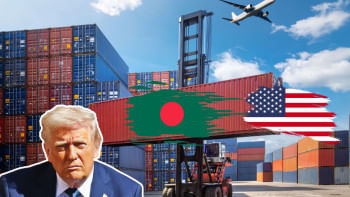Myanmar must recognise Rohingyas as its citizens
IN the wake of a much publicised international humanitarian crisis relating to boatpeople, thousands of whom are languishing in the high seas, Myanmar's reluctance to attend Thailand's May 29 regional summit to solve the issue, is disconcerting. There is no denial that countries such as Thailand, Malaysia and Indonesia, the usual destinations of these Bangladeshis and Rohingyas who end up in terrifying slave camps, must discuss how to humanely deal with the crisis.
But Myanmar cannot go on a denial mode when it comes to providing citizenship to the Rohingya people. In fact Myanmar has intimated that it will not attend this crucial summit if the term 'Rohingya' is used. The official line of Myanmar's government is that those whom we (and the rest of the world) refer to as Rohingyas, are actually illegal immigrants from Bangladesh.
The 1982 Citizenship Law of Burma (now Myanmar) denied the Rohingyas citizenship despite the fact that they have been living in that country for centuries. The abhorrent persecution of Rohingyas in the Rakhine State, led to thousands of displaced Rohingyas to take refuge in Bangladesh.
While Bangladesh, which still has thousands of Rohingya people in their refugee camps, must not turn away Rohingyas or any other boat people, the present circumstances behooves Myanmar to recognise its role in the matter. Although the democratically elected Aung Sun Suu Ki's party did not display the expected change in attitude towards the Rohingyas earlier, the recent statement by her party's spokesperson that stateless Muslims in Myanmar should be given citizenship, gives us a sliver of hope.
We eagerly wait for a possible end to the miseries of the Rohingya people through their official recognition as Myanmarese citizens.

 For all latest news, follow The Daily Star's Google News channel.
For all latest news, follow The Daily Star's Google News channel. 



Comments